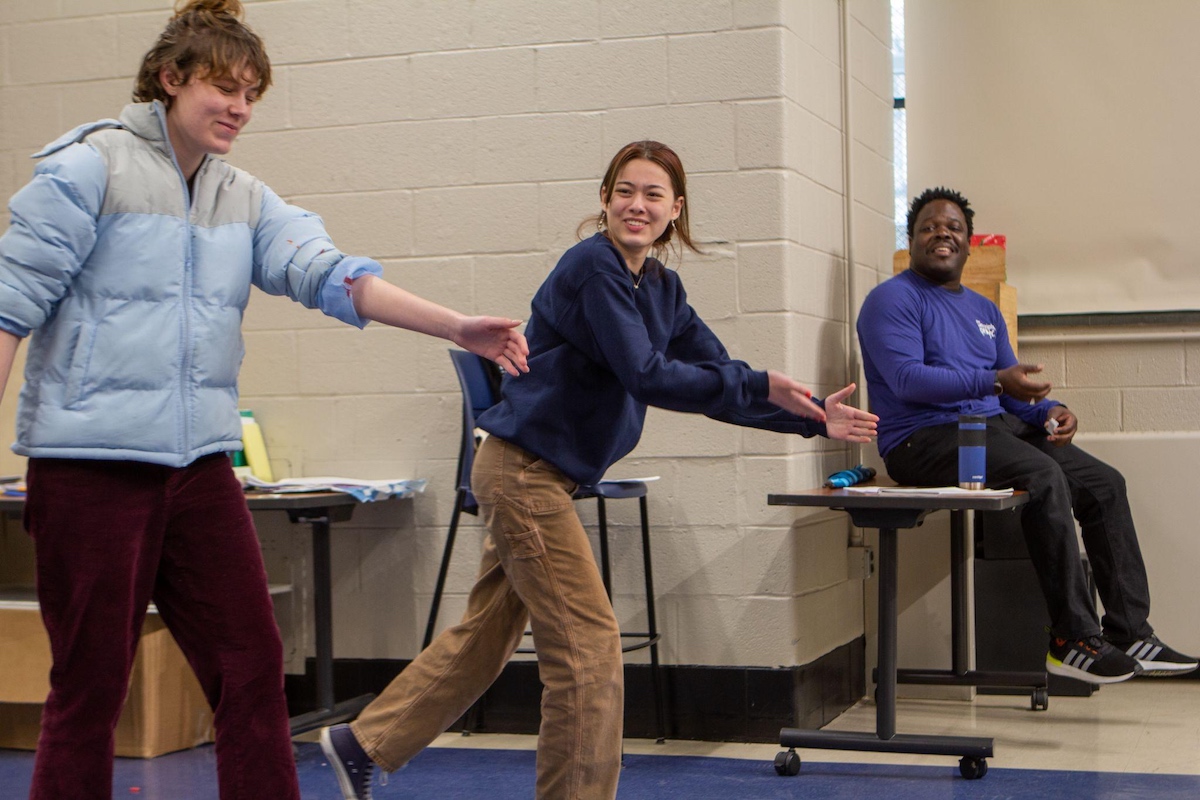As the back-to-school season kicks into gear and students step into classrooms once again, we at The Unscripted Project, an improv education nonprofit, find ourselves equally excited to resume our mission of fostering creativity, confidence, and communication skills through improv education.
We’ve supported over 1,000 students in just a few years and this school year, we’ll be operating workshops in 25 classrooms across Philadelphia, led by professional improv educators to deliver a high-quality learning experience that is steeped in trauma-informed and social-emotional teaching methodologies.
The impact on the students is real, and measurable: After our 10-week programming, 79% of students surveyed feel like they can better understand their own emotions and the emotions of others and 80% feel like they have become better communicators.
As the program director, I’ve had the privilege of witnessing the transformational power of improv in young people. However, it’s important to recognize that the benefits of improv are not confined to the realm of education alone — they hold significant implications for the modern workplace as well. We’ve seen the profound impact the art form has had in corporate workshops hosted by Comcast, The Wharton School, and many more.
With this resurgence of classroom learning (and improvising) upon us, there’s no better time to shed light on how employees can borrow a page from our handbook and integrate improv techniques and skill sets into their professional lives. Here are three invaluable lessons from the world of improv that can level up the dynamics of any workplace:
1. The art of active listening: Nurturing a culture of collaboration
Improv thrives on the foundation of active listening — the art of being fully present and attuned to your fellow performers. This core skill is not merely about hearing words; it’s about understanding nuances, emotions, and intentions. We often ask students during this lesson, “How does it feel when someone is truly listening to you?”
Active listening is one of the easiest ways to make someone feel heard and supported, and can look like eye contact, nodding, and asking questions. In the workplace, active listening is all about being present and serves as a critical building block for developing strong relationships and effective collaboration skills with coworkers.

An improv workshop led by The Unscripted Project. (Courtesy photo)
2. Embracing uncertainty: Adapting with grace under pressure
In the ever-evolving landscape of business, uncertainty is the only constant. Improvisers are well-versed in navigating the unknown, adapting their narratives on the fly is what it’s all about! This flexibility and willingness to embrace uncertainty are invaluable assets in the corporate world.
Employees and teams who embody the adaptive spirit of improv are better equipped to handle unexpected challenges, pivot strategies, and think on their feet. For example, last year, our programming was halted at certain partner schools due to needed but unplanned asbestos inspections in a handful of schools. However, since we launched the organization in the early phases of the pandemic, we adjusted quickly, dusted off our virtual training modules and kept the program rolling without getting delayed. By cultivating a culture that values adaptability, leaders can empower their teams to turn uncertainty into a catalyst for growth.
3. Storytelling and the art of persuasion: Crafting compelling narratives
Improvisers are storytellers at heart, adept at creating engaging narratives on the spot. In the workplace, compelling storytelling is crucial for conveying ideas, inspiring action, and persuading stakeholders. One of the most humorous but insightful exercises we employ is called “fake job interview.” In this activity, one student interviews another for a fictitious role — my favorite one to start is a Chicken Nugget Scientist. The roles are silly, which lowers the stakes for students participating, but this still highlights the importance of good posture, eye contact, and confidence in presentations or job interviews. Often, these non-verbal cues are as vital as the content itself.
Imagine a boardroom where presenters captivate audiences with compelling narratives, combining data with emotion to drive decision-making. By embracing the art of persuasion and storytelling from improv, employees can connect more deeply with clients, partners, and their colleagues.
In a world where change is constant and the need for interpersonal skills has never been greater, the stage is set for companies to harness the transformative power of improv. The spotlight is waiting — it’s time to take the stage.
Before you go...
Please consider supporting Technical.ly to keep our independent journalism strong. Unlike most business-focused media outlets, we don’t have a paywall. Instead, we count on your personal and organizational support.
3 ways to support our work:- Contribute to the Journalism Fund. Charitable giving ensures our information remains free and accessible for residents to discover workforce programs and entrepreneurship pathways. This includes philanthropic grants and individual tax-deductible donations from readers like you.
- Use our Preferred Partners. Our directory of vetted providers offers high-quality recommendations for services our readers need, and each referral supports our journalism.
- Use our services. If you need entrepreneurs and tech leaders to buy your services, are seeking technologists to hire or want more professionals to know about your ecosystem, Technical.ly has the biggest and most engaged audience in the mid-Atlantic. We help companies tell their stories and answer big questions to meet and serve our community.
Join our growing Slack community
Join 5,000 tech professionals and entrepreneurs in our community Slack today!

The person charged in the UnitedHealthcare CEO shooting had a ton of tech connections

Delaware students take a field trip to China using their tablets and ChatGPT

Northern Virginia defense contractor acquires aerospace startup in $4B deal




